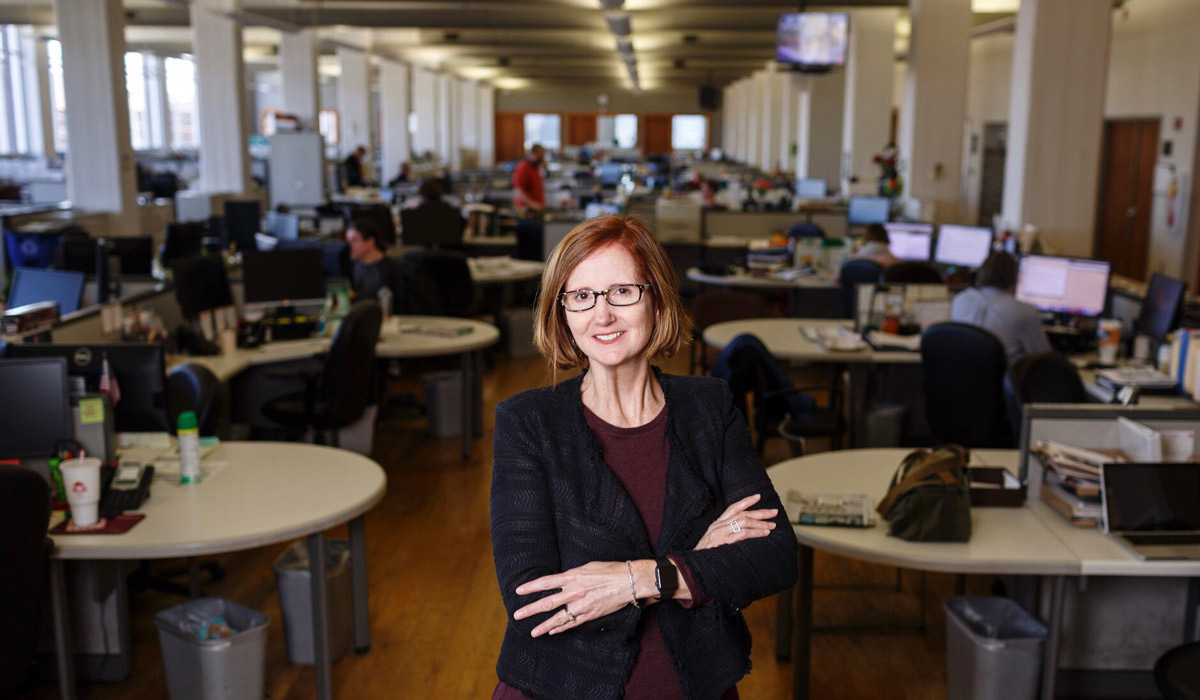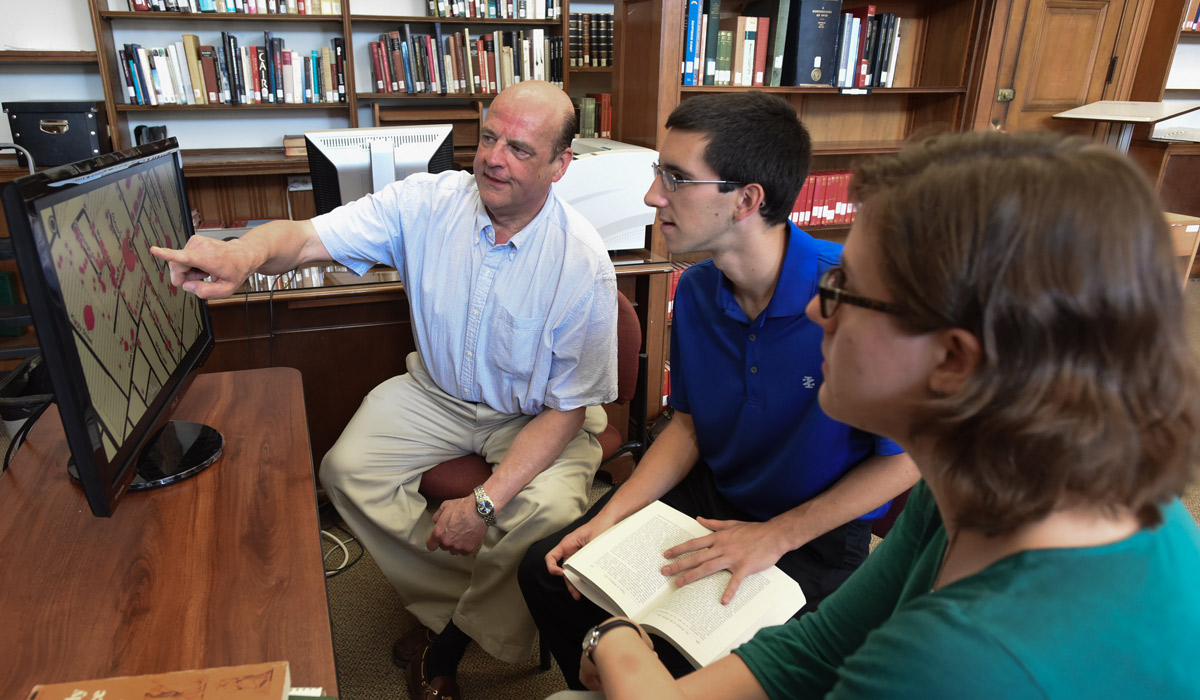

“Well, what do I do with my useless liberal arts degree now?” Alison Gerber asked herself after graduating from Catholic University in 1990 with a B.A. in History.
Her answer led to a career doing something she loves, where there is “no such thing as a dull day,” and where she manages a multi-million-dollar budget and a staff of “smart, funny, cynical, driven people who are dedicated to their craft.”
“If you major in engineering,” says History Professor Lawrence Poos, “there’s a good chance you’ll be an engineer; if you major in nursing there’s a good chance you’ll be a nurse. If you major in history there is a close to zero chance you’re going to be a historian.”
Instead, students who study the humanities go on to work in any number of fields, from things more traditionally associated with the liberal arts, like teaching and museum work, to business, IT, communications, law, and even medicine.
“Many of the best, most inquisitive journalists I know have liberal arts degrees.”
“In history classes, I learned to ask precise questions, to dissect trends, to review a story from multiple points of view, to ensure accuracy,” says Gerber, who is the chief editor and content director at the Chattanooga Times Free Press. “I used all of these when I became a reporter, and I still use them as an editor. Many of the best, most inquisitive journalists I know have liberal arts degrees.”
Learn more about how her liberal arts education influenced Gerber's career.
Poos often finds himself having to make a case for the liberal arts to inquiring students and their parents. “The culture out there is loaded to put pressure on students and their parents to believe that they have to major in S.T.E.M. or business or some other pre-professional program or they ruin their chances in life, but all the objective data shows that that is not true.”
After researching career projections and placement opportunities for history majors, Poos found, as previous surveys and studies have shown, that the income gap between S.T.E.M. graduates and those who study the humanities is much less drastic than generally thought. While S.T.E.M. graduates enter the workforce with higher salaries than their liberal arts counterparts, the latter group shows the largest percentage growth over time, often closing and even surpassing the income gap within 10 years.

Part of the misconception about the professional worth of studying the humanities, Poos theorizes, comes from a false impression of what graduates actually do in the workforce.
Olivia Hurwitz, class of 2013, studied English while completing a pre-med concentration. “I wanted to study something that really interested me that I knew I would never have the opportunity to study again and to expand my horizons that way,” she says. “It also ended up being a lot more helpful than I thought.”
Hurwitz described the first time she realized how well her liberal arts education had prepared her for her work as a doctor. She was learning how to read MRIs in medical school and was totally overwhelmed by what looked like “just a bunch of gray dots.” Her instructor told her, “the brain should always be symmetric. If you see something different, then you have to explore that more.”
That reminded her of how she learned to analyze poems in English class: “looking at structure, whether there was a break in the regular meter or a weird punctuation mark — something like that became the jumping off point for the analysis of the whole poem. So that’s immediately what came to mind when I was looking at these scans. You start with knowing what’s normal and then explore the irregularities and try to find out why they are there. It’s the same principle,” said Hurwitz.
Connor J. Kurtz, a 2016 politics major and history minor who is a research assistant for the non-partisan think tank the American Enterprise Institute in Washington D.C., said one of the most useful aspects about studying the liberal arts is that it teaches you to appreciate nuance.
“The liberal arts forces you to think clearly and think deeply about tough questions, first-principle questions. And then to communicate responses to them clearly. There’s an openness to discussion that comes with this.”
“The big keyword here is ‘transferable skills’,” said Claudia Bornholdt, chair of the Department of Modern Languages and Literatures. Studying the liberal arts, she said, immerses students in four years of training in finding, analyzing, evaluating, and communicating information.
“These are lifelong skills you learn and acquire, and these are ultimately the skills employers want,” she said.
Harvey Seegers, former CEO of General Electric’s electronic commerce division and a current professor in the Busch School of Business, has seen first hand the demand for liberal arts majors in the business world.
“All the employers that we talk to, here in the Washington area and around the world, tell us that they very highly value business school grads that had a liberal arts undergraduate education.”
“The skills honed in a liberal arts education are very rare, very valuable, and they have a pragmatic utility in the real world.”
When faced with the question, “why study the humanities?” Poos says his first mission is to debunk the career outcomes myth and to show them the value of their degrees outside of directly correlated career paths.
“It's our responsibility as purveyors of liberal arts education to make those connections clearer than they have been,” he says. “The skills honed in a liberal arts education are very rare, very valuable, and they have a pragmatic utility in the real world.”
After that, Poos lets the liberal arts sell themselves.
“The historical definition of the liberal arts comes from its very name,” says Poos. “It has to do with freedom. Freedom, first of all, from the very deterministic idea that education is all about a career and nothing else, but also freedom to understand, freedom to express, freedom to associate and make connections. Liberal education, first and foremost, should be, literally, freedom-making, literally freeing.”
Learn more about the liberat arts academic programs offered at Catholic University: